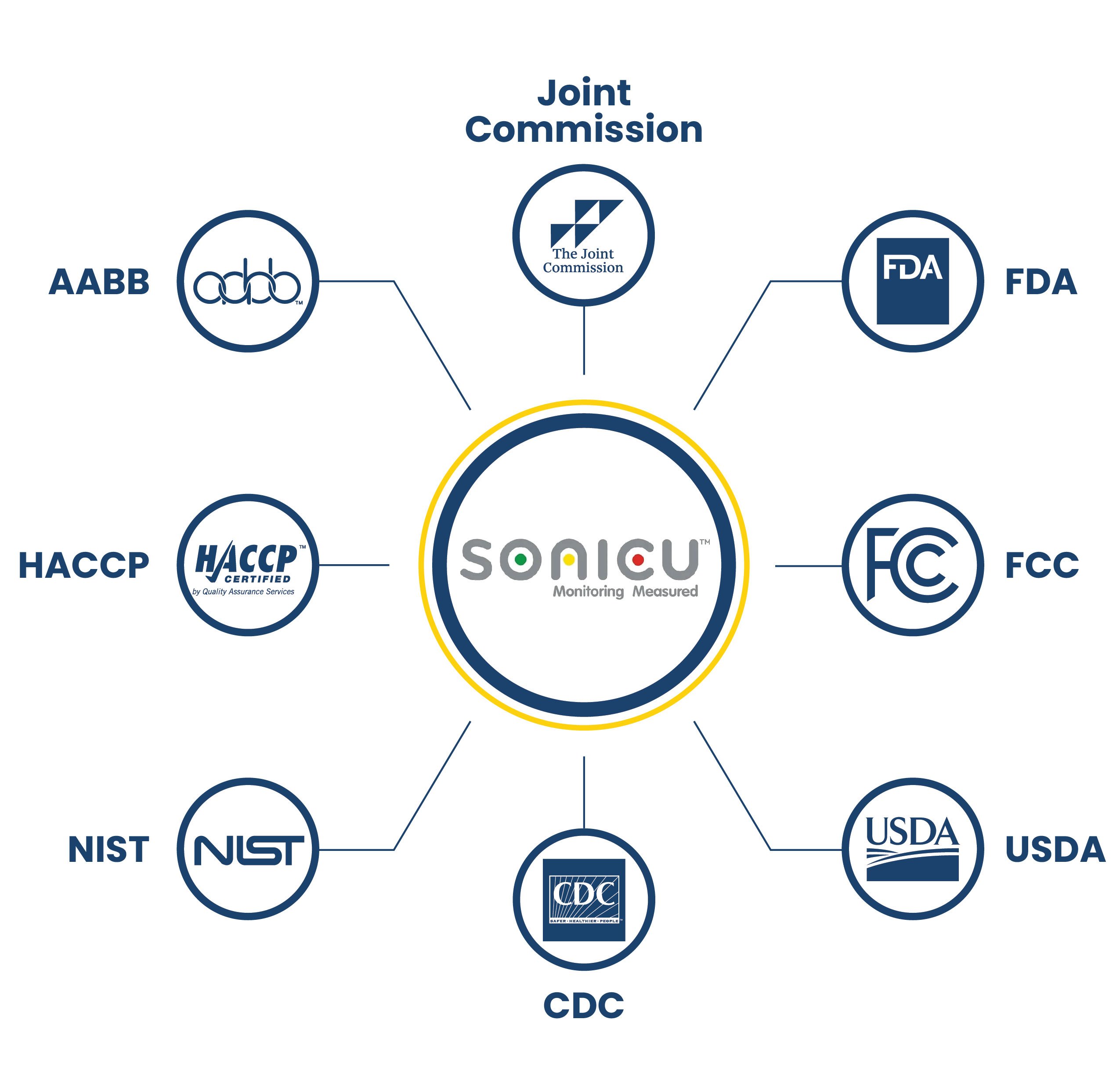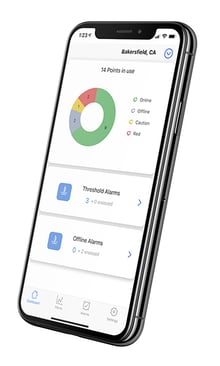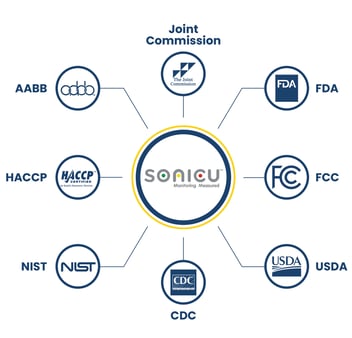The Food Safety Modernization Act Is A Big Opportunity
How to increase safety and efficiency while delighting customers
with affordable and simple technology
The U.S. food industry is due for a significant shakeup soon that impacts nearly every organization in the food services industry.
This follows the enactment of the Food Safety Modernization Act (FSMA) by the Food and Drug Administration (FDA).
FSMA seeks to shift from a reactionary approach to food-borne illness to a more proactive one aimed at prevention.
This represents a significant shift on the part of the government and will include measures that will require the food industry to invest in new people, processes and technology to remain compliant.
It’s easy to see why the government is making this move.
One in six Americans or 48 million people get sick every year as a result of foodborne diseases according to the Centers for Disease Control and Prevention (CDC).
Under the new regulations, manufacturers, processors, shippers and distributors have a greater responsibility to contribute to food safety due to the responsibilities outlined in FSMA.
This article will highlight some of the key provisions of the act, and explain how a trusted temperature and environmental monitoring firm like Sonicu

FSMA Implementation Timeline
Legal experts view the Food Safety Modernization Act as the biggest reform of U.S. food laws in almost a century. As such, it requires time to fully implement.
Here’s an overview of its timeline:
December 19, 2010: Senate passes FSMA
December 21, 2010: House of Representatives passes FSMA
January 4, 2011: FSMA signed into law
September 23, 2020: FDA proposes the "Requirements for Additional Traceability Records for Certain Foods" Food Traceability Proposed Rule (FSMA 204)
November 7, 2022: The FDA finalizes the Food Traceability Proposed Rule
January 2023: The Traceability rule comes into effect
January 2025: Deadline to comply fully with the regulations
In addition, the FDA has also introduced the New Era of Smarter Food Safety as well as a New Era of Smarter Food Safety Blueprint.
Both of these have been developed with an aim of streamlining modern approaches to ensuring food safety. These enhancements will be achieved through the use of digital, tech-fueled traceability.
This approach is referred to as serialization.
Serialization entails turning products into digital assets that can be tracked in real-time from any location at any time.
An example of a serialization solution is Sonicu’s temperature and condition monitoring used by food storage companies like Piazza Produce and US Foods, to name just a few.
When combined with Sonicu’s ability to automate temperature monitoring compliance for state and local regulatory authorities, an investment in a remote, wireless temperature monitoring solution like Sonicu can rapidly pay significant return on investment.
The Opportunities Presented By The FDAs Food Traceability Regulations
Under the new regulations, an end-to-end traceability process is no longer an optional way to go about food manufacturing and distribution.
This calls for the integration of digital tools and technologies into each stage of the entire supply chain up to the point products customer consumption.
But compliance so as to avoid fines shouldn’t be the only reason to get on board.
Deploying the right solution will not only help you keep your operations compliant, but also improve efficiencies in your supply chain. Temperature monitoring will grow in importance as organizations associated with the manufacture, storage and transport of food comply with federal regulations.
Industry professionals should look for a vendor like Sonicu who has a strong established track record in this industry, and offers the following key features:
- Simple installation and configuration easily conducted in house
- A mobile app that ensures safety and operations professionals are always connected to their critical cold storage environments
- NIST certified probes and sensors that meet the requirements of regulators
- Intuitive software that does not require tedious training
- A robust U.S.-based customer support system with phone support
- Flexibility in pricing between capital and operating expenses
Potential For Market Expansion
While there have been disruptors keen to expand online food and grocery shopping in recent years, an overwhelming majority of Americans - 89 percent of households - shop for these essentials at supermarkets and supercenters.
If you’re a food producer looking to tap into this high-traffic market, the big retailers expect a high level of compliance to help them satisfy the end-to-end reporting.
The FDA maintains a database of offenders and can quickly mire an organization in bureaucratic red tape for failing to comply with their straightforward regulations aimed at public safety.
The sooner you adopt technology to comply with FSMA requirements and obtain relevant accreditation such as through a third-party certification of compliance, the sooner you can expand your products to reach more consumers.
We can expect that once the compliance window closes , major supermarkets and superstores will have stringent measures in place to assess suppliers against the FDA’s requirements.
But waiting for that moment is likely not the right decision for any organization in the food business. Acting proactively can help your organization avoid this heartache.
Sonicu recently installed our affordable and trusted temperature monitoring solution in dozens of schools across Michigan as their leadership prepared for the looming regulations and the real threat of replacing expensive food due to the failure of a walk-in cooler or freezer.
.jpg?width=960&height=540&name=Copy%20of%20Venn%20diagram%20Sonicu%20with%20Coldvision%20logo%20(1).jpg)
Building Consumer Confidence
Now more than ever, consumers are more conscious about the products they purchase.
They are keen to establish where the products originate , how the ingredients were sourced, and how the products were crafted, shipped and ultimately sold. With more information at their fingertips than ever before, consumers can quickly and easily identify
Putting in place processes and systems to facilitate end-to-end traceability of all raw materials, packaging, and distribution makes it easier to demonstrate to your customers that your products maintain the highest standards of quality having undergone rigorous checks to guarantee consumer wellness.
Being able to demonstrate a commitment to consumer wellness can boost consumer confidence and satisfaction, increasing sales and customer satisfaction.
Improved Supply Chain Visibility
Under the provisions of the Food Safety Modernization Act, the FDA can prompt mandatory recalls of virtually any food product.
This means that at each step of the supply chain everyone involved needs to keep proper records of raw material sources, products received by customers, and other critical data points.
To ensure each party plays their role as required, this new framework makes it possible to gain visibility on product handling.
Everyone from distributors and maybe even consumers at one point will be able to tell which lot a product belongs to and gain information on how it was formulated.
Improved Cost Management
As FSMA calls for product lots to be tracked fully, the use of technology offers an opportunity to better track and manage product movement data along the different supply chain stages.
Sonicu already helps leading brands in pharmaceutical and food service distribution and transportation improve how they monitor, alert and report on their temperature sensitive assets.
When integrated with other software solutions, like warehouse management software, a temperature or environmental monitoring solution can make this data widely available across an organization, increasing efficiency and the opportunities to troubleshoot potential operational challenges.
Advanced software can also crunch the data for a better understanding of production costs as well as warehouse activity, for instance.
Manufacturers and distributors can pinpoint specific product costs and shift from average costing which may be inconsistent or inaccurate.
Consequently, this will enable better inventory management and opportunities to prevent loss.
Quality Assurance
Ultimately, regulatory compliance contributes to quality improvements as a result of enhanced processes and procedures.
The final goal is that consumers enjoy high-quality products that do not pose risks to their safety. Consumers expect this sort of monitoring and real-time responsiveness are leveraged by the brands that deliver the products they rely on every day.
The FSMA is aligned in advancing quality assurance as it is similar to Global Standard for Food Safety (GSFC) standards such as the British Retail Consortium (BRC).
Improved Process Management
Reduction of inefficiencies in business processes and procedures leads to profitability.
Since FSMA compliance will coincide with greater adoption of technology and digital tools/services, it will help improve processes along the supply chain.
Digital assets not only help with monitoring but also contribute to a better way of getting work done.
And the thought of eliminating the tedious paperwork and instead pulling records from any date range or using different filters.
Sonicu customers rely on our two-click compliance to product instant reports that can satisfy regulators from the:
- FDA
- USDA
- Joint Commission
- State Board of Health
- County Health Commission
If you have to comply with the risk of potential unannounced audits as well as complying with the rigors of the FSMA, a trusted and affordable temperature monitoring system from a brand like Sonicu is an essential tool in your arsenal.
INSERT VIDEO
Begin Your Journey To Compliance With Sonicu
Indeed, the Food Safety Modernization Act, as well as related traceability regulations, have been years in the making and will soon l be the rule not the exception.
Companies involved in the handling of food products for human consumption will have to make the necessary changes in order to comply. Many of these changes become enforceable starting in 2023, so time is short to adopt the technologies required to comply.
However, these regulations are more than a compliance mandate.
Companies that fail to embrace this regulation as an opportunity to increase safety, efficiency and brand value will lose out on the additional opportunities available
Thinking beyond compliance will improve food quality and reduce safety risks, thereby improving brand building and protection.
This will create a win-win-win dynamic for companies, consumers and stakeholders.
At Sonicu, we develop solutions that seek to improve operations, boost efficiency, and realize value.
We offer a range of automated tools that digitize operations for different industries.
To learn more about our compliance automation solutions, contact us.





